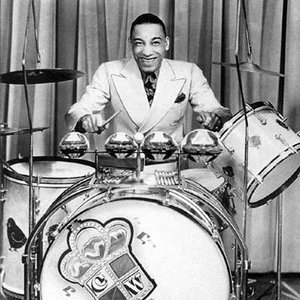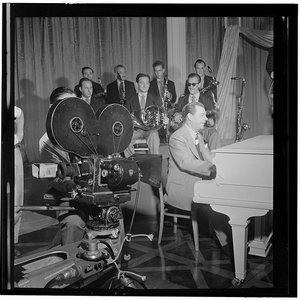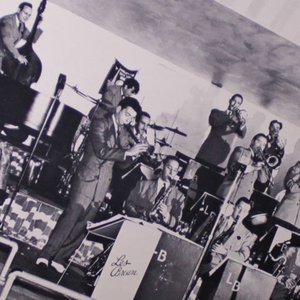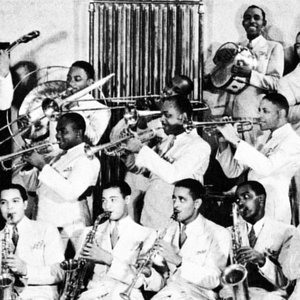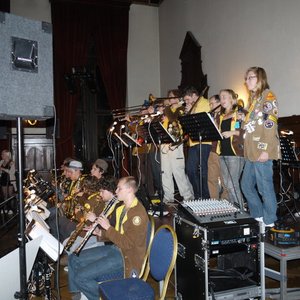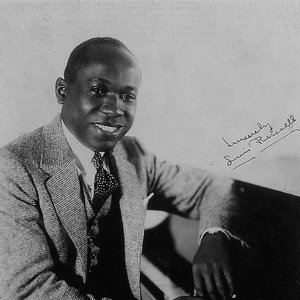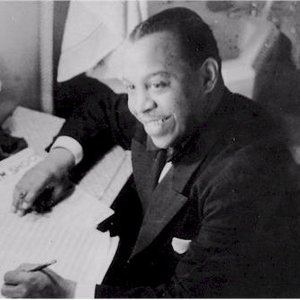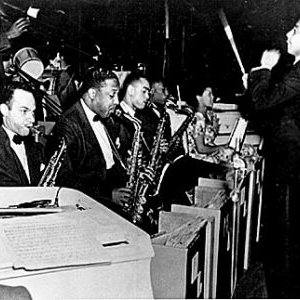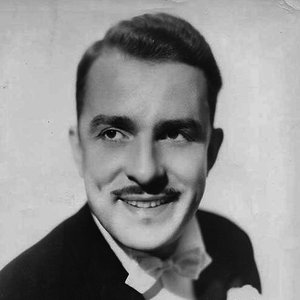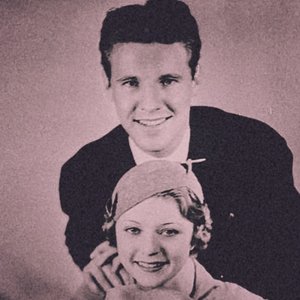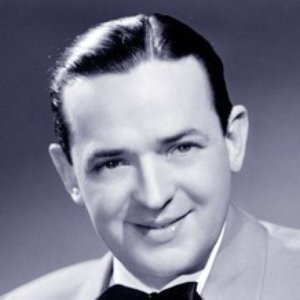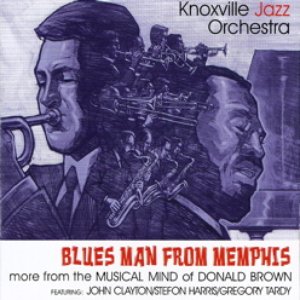Biography
-
Members
- Adrian Tei
- Al Beck
- Babe Wagner
- Ben Searman
- Benny Feeman
Gene Krupa
From Wikipedia, the free encyclopedia
Gene Krupa (January 15, 1909 – October 16, 1973) was a famous and influential Polish-American jazz and big band drummer, known for his highly energetic and flamboyant style.
Krupa was born in Chicago, Illinois. He began playing professionally in the mid 1920s with bands in Wisconsin.
He made his first recordings in 1927, with a band under the leadership of banjoist Eddie Condon and "fixer" (and sometime singer, who did not appear on the records), Red McKenzie: these sides are now recognised as the first, and definitive, examples of white "Chicago Style" jazz. The numbers recorded at that session were: 'China Boy', 'Sugar', 'Nobody's Sweetheart' and 'Liza'.
In 1943, Krupa was arrested for possession of marijuana and was given a brief jail term. After his release, Krupa reorganized his band with a big string section, featuring Charlie Ventura on sax. It was one of the largest dance bands of the era, sometimes containing up to forty musicians. He gradually cut down the size of the band in the late 1940s, and from 1951 on led a trio or quartet. He appeared regularly with the Jazz At the Philharmonic shows.
Krupa largely went into retirement in the late 1960s, although occasionally played in public until shortly before his death from leukemia in Yonkers, New York. He was buried in Holy Cross Cemetary in Calumet City, Illinois.
Artist descriptions on Last.fm are editable by everyone. Feel free to contribute!
All user-contributed text on this page is available under the Creative Commons Attribution-ShareAlike License; additional terms may apply.
